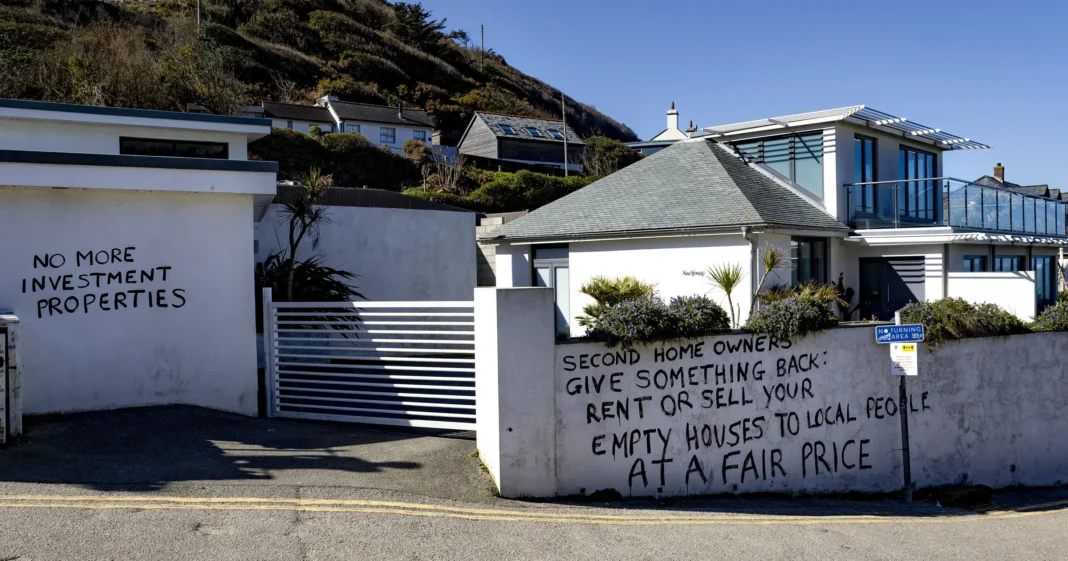Cornwall – Cornwall’s second home tax is causing concern among local officials, with fears that homeowners will find ways to avoid the charges. The new tax, set to take effect in April, will impose a 100% surcharge on second homes. However, some believe many property owners will take steps to sidestep the additional cost.
Local councillor Steve Arthur, who runs a holiday cottage business, predicts that second homeowners will transfer properties to their adult children. This move could allow them to avoid paying double the standard council tax rate. “No one wants to pay more than they have to, and if transferring ownership is an option, many will take it,” Arthur said.
Cornwall Council expects to raise £24 million from taxing second homes, but Cornwall’s second home tax may not generate as much revenue as planned. With limited resources to verify property ownership, councils must rely on homeowners to self-report their property status. Some fear that loopholes, such as reclassifying homes as holiday rentals, could further reduce expected tax income.
Gwynedd in Wales has already seen similar trends after implementing a second home tax. Initially, owners turned their properties into holiday lets, advertising them for rent but keeping them largely for personal use. After a tax hike to 150%, many homeowners transferred ownership to their children or changed their primary residence designation. While Gwynedd experienced a drop in house prices, Cornwall lacks the extra legal powers needed to enforce such measures effectively.
Tax expert Dan Neidle warns that Cornwall’s second home tax may not deliver the anticipated financial benefits. “People with multiple properties haven’t needed to think about which is their main home. Now they will, and some may switch,” he explained. Though some second homeowners might sell their properties, experts believe the effect on housing affordability will be minimal.
Cornwall Council, like many others across the UK, faces severe financial pressure. The county plans to raise £417 million from main residence council tax, £271.5 million from business rates, and an additional £101 million from government grants. Any shortfall from the second home tax could push the council further into financial difficulties, bringing it closer to issuing a Section 114 notice, which effectively signals bankruptcy.
Across the UK, local authorities are exploring alternative revenue sources. Some councils, including those in Wales and Scotland, are considering a tourist tax. Edinburgh’s proposed tax could generate over £40 million, while Manchester’s hotel levy raised £2.2 million in its first year.
Despite concerns, Cornwall is moving forward with its second home tax, even as house sales rise. Local estate agent Jo Ashby reports that many second homeowners are choosing to sell rather than pay the additional tax. “The policy has sparked a major debate, and prices have already started falling,” she said. Rightmove data shows Cornwall’s house prices declined by 5% last year.
While some argue that taxing second homes could help ease the housing crisis, others fear it will harm Cornwall’s economy. Ashby notes that even a 20% price drop may not make homes affordable for locals.
Financial expert Tony Travers believes only the central government can solve the crisis. “A second home tax and tourist tax may help, but they won’t fix the broken funding model for local councils,” he said. Many councils are already struggling to cover rising social care costs, forcing them to cut services.
Cornwall’s housing crisis remains a pressing issue, and the long-term effects of the second home tax remain uncertain. As homeowners, councils, and policymakers continue to debate its impact, only time will tell if the tax achieves its intended goals.
Stay tuned to London Pulse News, for more updates.


